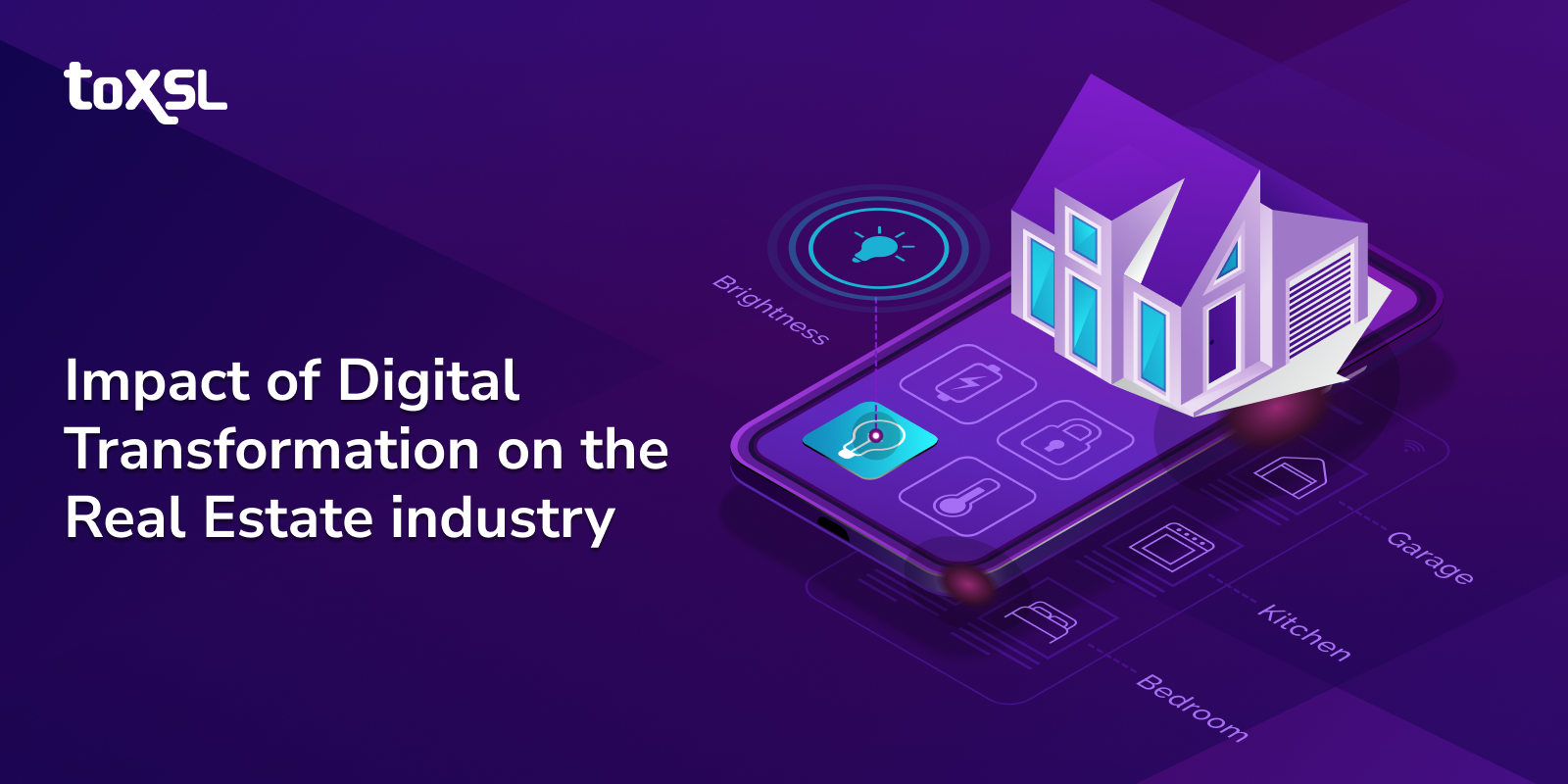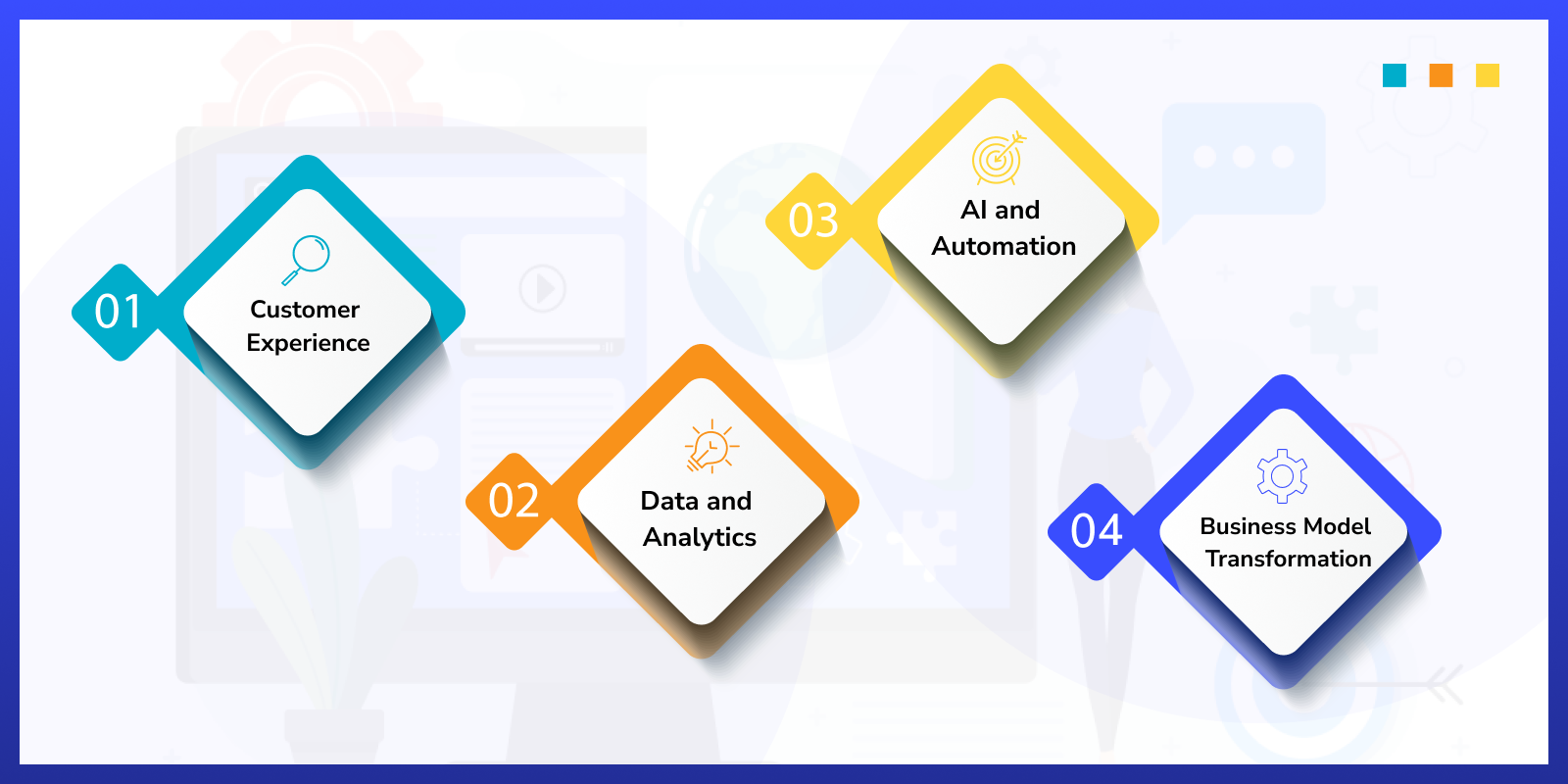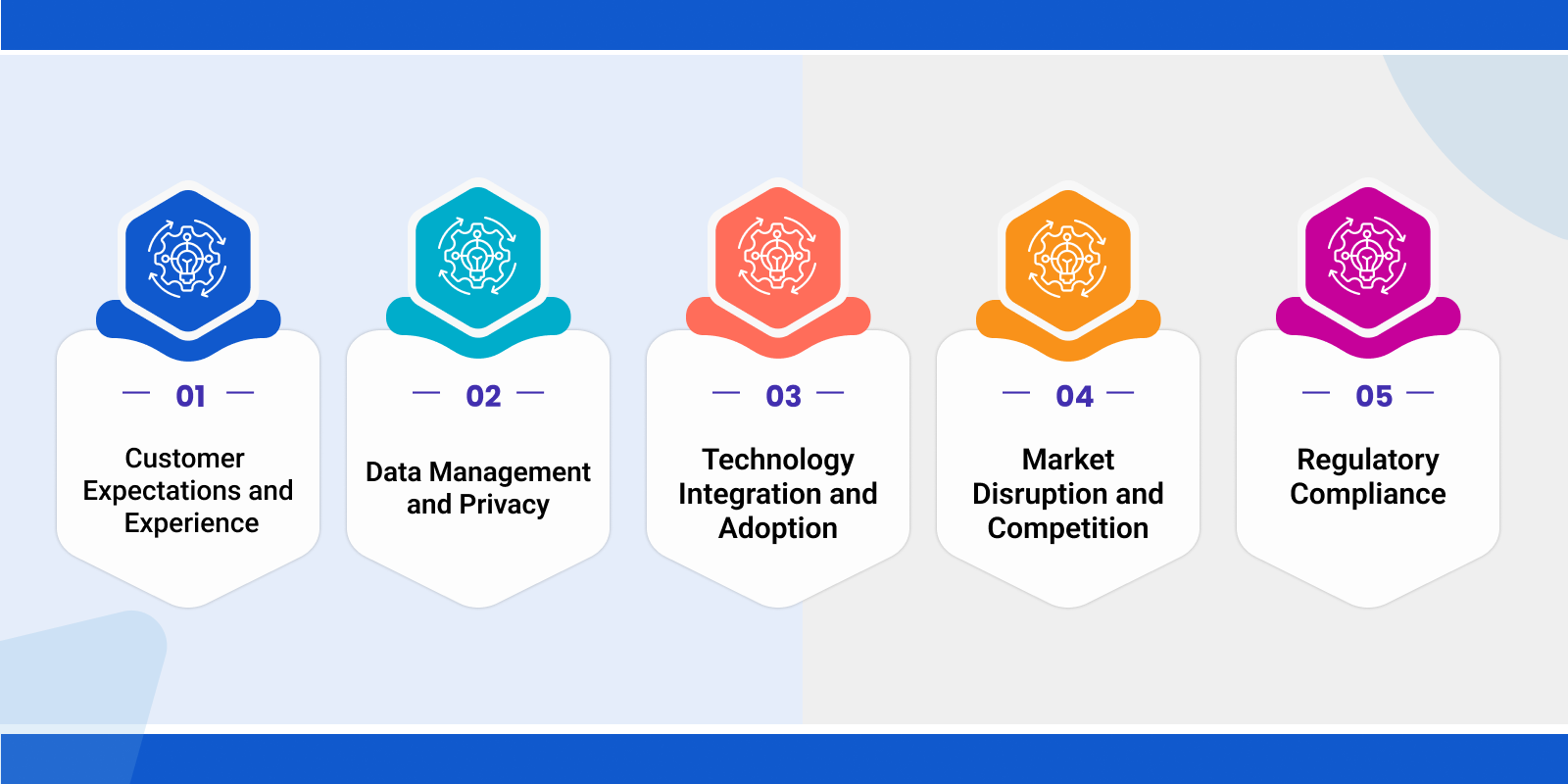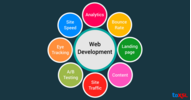- Apr 08, 2025
- Others
- 3815
Share this post on:

The real estate industry has been experiencing a significant transformation in recent years, driven by advancements in technology and changing consumer behaviors. Digital transformation has revolutionized many aspects of the industry, from property listing and marketing to transaction management and customer service.
According to a McKinsey report, the real estate industry stands to gain between $110 billion to $180 billion in productivity through the adoption of generative AI technologies. In this blog post, we will explore the core areas of digital transformation in real estate, provide examples of real estate digitalization, and discuss the challenges facing the industry.
Core Areas of Digital Transformation in Real Estate

Digital transformation in the real estate sector encompasses various core areas that drive innovation, efficiency, and improved customer experiences. These key areas play a crucial role in reshaping how real estate firms operate and interact with clients. Let’s delve into the core aspects of digital transformation in real estate:
1. Customer Experience
Enhancing customer experience is a fundamental aspect of digital transformation in real estate. By leveraging digital tools, real estate companies can provide 24/7 self-service portals for customers to search listings, schedule showings, and access information independently. This self-service approach, coupled with automated assistance, empowers customers while allowing agents to focus on building relationships and delivering personalized services. Along with this, ServiceNow Development Company can help business to enhance their Customer Experience.
2. Data and Analytics
Data and analytics are pivotal in driving informed decision-making and optimizing operations in the real estate industry. With the exponential growth of data globally, real estate professionals can harness advanced analytics to identify opportunities, personalize recommendations for clients, and gain insights into market trends. By tracking customer digital footprints, real estate firms can offer tailored solutions and enhance overall service quality.
3. AI and Automation
Artificial intelligence (AI) and automation technologies are revolutionizing how tasks are performed within the real estate sector. From automating marketing and sales processes to streamlining administrative tasks, AI-powered solutions enable significant productivity gains for real estate professionals. By migrating workflows to cloud platforms and implementing intelligent automation tools, companies can save time, reduce manual efforts, and focus on value-added activities.
4. Business Model Transformation
Digital transformation drives a shift in traditional business models within the real estate industry. By embracing technology-driven solutions, companies can streamline operations, enhance collaboration among agents, and reduce overhead costs. The integration of digital tools facilitates faster transactions, minimizes the need for physical interactions, and fosters a more agile business environment.
Hence, these core areas of digital transformation underscore the importance of adopting innovative technologies to stay competitive, improve operational efficiency, and deliver superior services in the dynamic real estate landscape.
Also Read: The Ultimate Guide to Estimating Real Estate App Development Cost in UAE
Digitalization Challenges Facing the Real Estate Industry

The real estate industry is undergoing a significant transformation driven by digital technologies. While this shift offers numerous benefits, it also presents several challenges that real estate companies need to address to stay competitive and relevant in today’s market. Let’s delve into some of the key digitalization challenges facing the real estate sector:
1. Customer Expectations and Experience: One of the primary challenges for the real estate industry is meeting evolving customer expectations in a digital age. Modern consumers are accustomed to seamless online experiences and expect the same level of convenience when buying or renting properties. Real estate companies must invest in digital tools and platforms that enable virtual property viewings, online transactions, and personalized services to enhance customer satisfaction.
2. Data Management and Privacy: As real estate firms collect vast amounts of data on properties, clients, and market trends, ensuring proper data management and privacy protection becomes crucial. Data security breaches can have severe consequences, including reputational damage and legal implications. Real estate companies need robust data governance policies and cybersecurity measures to safeguard sensitive information and comply with regulations like GDPR.
3. Technology Integration and Adoption: Integrating new technologies into existing legacy systems can be a daunting task for many real estate organizations. Transitioning from manual processes to automated solutions requires careful planning, employee training, and change management strategies. Resistance to adopting unfamiliar technologies among employees can hinder digital transformation efforts and impede operational efficiency.
4. Market Disruption and Competition: The rapid pace of technological advancements has led to increased competition in the real estate sector from tech-driven startups and online platforms. Traditional real estate firms face the challenge of staying ahead of disruptive innovations while maintaining their market share. Embracing digitalization not only helps companies differentiate themselves but also allows them to adapt to changing market dynamics effectively.
5. Regulatory Compliance: Real estate is a highly regulated industry with complex legal requirements governing property transactions, contracts, and disclosures. Digitalization introduces new compliance challenges related to e-signatures, online contracts, data storage, and consumer protection laws. Real estate companies must stay abreast of regulatory changes and ensure their digital practices align with industry standards to avoid legal pitfalls, as demonstrated by the recent MLS lawsuit, which highlights the potential legal challenges companies can face when compliance measures fall short in the competitive real estate market.
Examples of Real Estate Digitalization
Digital transformation in the real estate industry has brought about significant changes and advancements, revolutionizing how properties are bought, sold, and managed. Here are nine key examples of real estate digitalization that showcase the innovative technologies reshaping the sector:
Real Estate CRMs: Customer Relationship Management (CRM) systems tailored for real estate companies have become essential tools for agents. These platforms centralize contact management, lead tracking, and client communication, enabling agents to personalize interactions and improve customer relationships.
Virtual Reality (VR) Tours: VR technology allows potential buyers to take virtual tours of properties from the comfort of their homes. This immersive experience provides a realistic view of the property’s layout and features, saving time for both buyers and agents.
Blockchain: Blockchain technology is being used to streamline property transactions by providing secure, transparent, and tamper-proof records of ownership and transactions. Smart contracts on blockchain platforms can automate various aspects of real estate deals, reducing paperwork and enhancing trust between parties.
Artificial Intelligence (AI) Property Search:AI-powered algorithms analyze user preferences and behavior to recommend personalized property listings. This technology enhances the search process for buyers by presenting relevant options based on their criteria and interests.
Automated Valuation Models (AVMs): AVMs leverage data analytics and machine learning to estimate property values accurately. These models consider various factors such as location, market trends, and property characteristics to provide quick and reliable valuation reports.
Smart Home Technology: IoT devices integrated into properties enable remote monitoring and control of various systems like security cameras, thermostats, lighting, and appliances. Smart home features enhance convenience for homeowners while also increasing property value.
Predictive Analytics: Real estate firms use predictive analytics to forecast market trends, identify investment opportunities, and optimize pricing strategies. By analyzing historical data and external factors, businesses can make informed decisions to maximize returns.
Online Real Estate Marketplaces: Digital platforms connect buyers, sellers, agents, and developers in a centralized marketplace where properties are listed, searched, and transacted online. These marketplaces offer convenience, transparency, and a wider reach for property listings.
Robotic Process Automation (RPA): RPA tools automate repetitive tasks such as document processing, data entry, and compliance checks in real estate operations. By reducing manual workloads and errors, RPA enhances operational efficiency and accelerates transaction processes.
These examples illustrate how digital technologies are reshaping the real estate industry by improving efficiency, enhancing customer experiences, and driving innovation across various aspects of property transactions.
Conclusion:
Digital transformation has brought about significant changes in the real estate industry, improving efficiency, customer experience, and decision-making capabilities. However, some challenges need to be addressed, such as cybersecurity risks, regulatory compliance, and technical difficulties. By embracing digital technologies and addressing these challenges, real estate companies can remain competitive and successful in the ever-evolving digital landscape.
If you are looking to develop a real estate app, but don’t know where to start, Don’t worry! We have got you covered. We, ToXSL Technologies, are a leading real estate app development service with a team of expert developers who know exactly what solution you will need after listening to your requirements. Hire our real estate developers and let them help you take your business to the next level.
FAQs
Q1. How is digital transformation changing the real estate industry?
Digital transformation is streamlining property searches, transactions, and management through technology. Online platforms, virtual tours, and automation tools improve customer experience and save time. It enables faster decisions and better service.
Q2. What technologies are used in digital real estate solutions?
Technologies like AI, big data, IoT, and virtual reality are widely used. These help in property analysis, predictive pricing, digital marketing, and virtual home tours, offering more accurate and engaging solutions for both buyers and sellers.
Q3. How does digital transformation benefit real estate businesses?
It increases efficiency, reduces costs, and enhances customer engagement. Real-time data and online platforms help agents connect with more clients, manage listings effectively, and close deals faster. It also supports remote work and online transactions.












